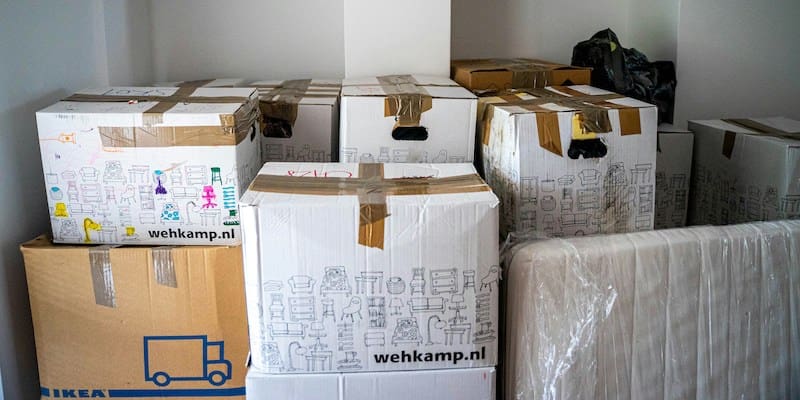
On the Side: April 2024
Moving with Grace
by Summer Gross
Moving is an art form. It’s also an invitation to be gentle with ourselves and fall into the arms of Grace.
My mom and I are speaking together at the Side By Side Conference at the CMDA National Convention in May at Ridgecrest Conference Center in North Carolina. We’re also both in transition. Dad is now working at St. Christopher’s Hospital in Philadelphia and they’re presently selling their house of 12 years an hour away, saying goodbye to long-term friends and neighbors and moving to a suburban apartment. My husband, although not a doctor, works for the Anglican Church in North America and will receive a new post after the election of a new Archbishop in June.
No matter how many times we’ve moved, we always feel a bit unanchored, so it’s a perfect time to remind ourselves of what we’ve learned before.
- Moving makes you tired. If you think about it from a purely scientific standpoint, new neural pathways are constantly being built. New roads. New people. A plethora of details that require attending. Give yourself extra sleep. Moving gives your brain a workout.
- Grief can often surprise you. Although I (Summer) had only lived in Pittsburgh for one year, grief surprised me with its force. Just remember, as you lament, allow the Lord to hold your sadness with you. Like David, let your uncensored cries rise before Him and let Him meet you in your grief. “He has unlimited capacity to hold your grief with tenderness.” (The Emmanuel Promise, pg. 31)
- Moving often brings up a fear of scarcity. This is a perfect time to get out your gratitude journal or write daily thanksgivings in your notes app on your phone. Make them as sensory as possible so you can rehearse the joy: “Kids squealing at the new park, light breeze, warm sun, birdsong in the bare trees.” Share them with your spouse and watch him smile. As Ann Voskamp in One Thousand Gifts reminds us on page 152: “Gratitude lays out planks of trust. I can walk the planks—from known to unknown—and know: He holds.”
- Mom and I have found an incredible resource in attachment theory which informs our self-awareness. Attachment theory is fascinating. The first three years of our life with our caregiver builds our expectations for trust for the rest of our life. If you have an insecure anxious attachment style, you may fall into a fear of scarcity, not believing you will be cared for on the other side of your move. Moving can give you butterflies in your stomach, or you may feel as if you’re falling off a cliff. Transitions may be more difficult for you than for other attachment styles. Remember and rehearse the ways God has come through for your family in the past. Meditate on the Word before falling asleep.
- If you have an insecure avoidant attachment style, you may think that you’re on your own, an army of one. You may distance yourself from any feeling of vulnerability and struggle with numbing during a transition. Asking for help with your move may not occur to you. Praying through the details of your move may not even come into your awareness. The truth is that you have an Abba who desires to companion you through each stage of your transition. You are never alone. No detail is too small for His notice.
- Sometimes our prayer and Bible study habits can shift during a transition, and we can experience a lot of shame. This is normal. The habits which are the most nourishing will eventually come back, grounding you in your new space. My favorite prayer practices during this season are breath prayer (Such as inhaling: the Lord, exhaling: is my Shepherd) and using a posture that I return to, such as a raised hand. With a raised palm, I’m expressing a desire to stay awake and aware of God’s presence, my true home. I’m also asking questions, such as, “Jesus, will you stay near?”, and with my palm raised I’m staying connected to my need for His provision.
- Picture Christ in your future. Mom tells this story: “I remember sitting across from my therapist after finding out we were moving from Columbus, Ohio where I had a vibrant Side By Side group that I loved and helped to found, to Reading, Pennsylvania where I didn’t know a soul. Delores asked me what I was worried about. I replied that I was concerned about being lonely as I had to start over. I told her about empty days and an empty house. Delores popped her head up quickly, looked me straight in the eye and said, “Beth, you are painting a picture without God in it.” She was right. Her statement encouraged me to start imagining Christ on the other side of my move just like David in Psalm 139:9b-10, “…if I settle on the far side of the sea, even there Your hand will guide me, your right hand will hold me fast” (NIV).
As you move, be aware of how you’re picturing your future. Your inner pictures have power. We often allow our imaginations to be controlled by worry. What if we used our imaginations as a way to picture the truth? Can you see Jesus standing at the end of your journey, welcoming you into your new life? As I teach in my upcoming book, The Emmanuel Promise, “What if we could experience an attachment with God so grounding that we feel safe in every room because we are oriented to His anchoring presence?” (pg. 13).
Summer Gross is a retreat leader, spiritual director, and the author of the new book, The Emmanuel Promise: Discover the Security of a Life Held by God, which examines our attachment style and how it affects our relationship with God. Growing up, Summer went with her family on CMDA mission trips to Dominican Republic, Ecuador and Tibet. Her mother, Beth Myers, has founded Side By Side groups in Ohio and Pennsylvania, and loves walking with women through these tender years.
You can Pre-Order The Emmanuel Promise now and receive a free 7-Day Podcast devotional called “Welcome Home” at summerjoygross.com.
|
|

